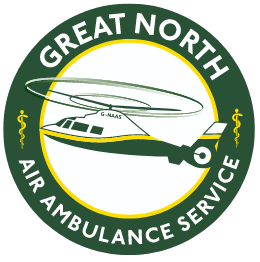The original and best pre-hospital training course for both doctors and paramedics.
Key Details
Where?
TBC
When?
TBC
Price?
£3,500
About the course
The aims of the course are quite clear. Provide accessible and up-to-date package of training that gives both doctors and paramedics the skills needed to operate safely and with competence in the pre-hospital environment.
We believe we are the only ‘one-stop shop’ for external applicants to come and receive this full package of training (outside of local introductory programs). Training encompasses all components of safe and high-quality pre-hospital care including; human factors / non-technical skills, clinical skills, technical (including surgical skills), obstetric & paediatric emergency skills, aviation & retrieval medicine theory, water rescue training, and working at height with local mountain rescue teams.
Throughout the course, we will be working closely with other emergency services and dealing with high-fidelity, realistic scenarios, some of which are on a large scale. This course aims to provide the skills the pre-hospital critical care practitioner needs to succeed.
Why PHEMCC?
Learn together
The PHEMCC is one of the only courses offering side by side training for doctors and paramedics.
Learn with experts
The course is led by a faculty of senior PHEM / HEMS clinicians (consultants + aircrew paramedics)
History
Although Pre-Hospital Emergency Medicine is one of the newer medical sub-specialties, (GMC sub-specialty and commencement of a formalised training program began in 2012) doctors and paramedics began working together to deliver enhanced care during the 1990s.
The role of doctors in pre-hospital care was initially unclear and not without controversy, but GNAAS recognised the improvements in care that the doctor paramedic model offered, and became one of the first providers outside of London to formalise this team model. The fact that teams were being transported in a helicopter to critically injured patients (rather than the patient being brought to them) meant there was an ongoing need to upskill new doctors and paramedics so they could deliver interventions and enhanced care effectively in this challenging environment.
GNAAS worked with London’s Air Ambulance to develop a course that provided clinicians with both the clinical and non-clinical skills that were required as HEMS (now called PHEM) clinicians. The course became known as the ‘HEMS Crew Course’ and was delivered annually in one form or other from around 2008.
2014 saw the beginning of a new direction for both the course and GNAAS as a training organisation. New directorship and the formation of a partnership with County Durham Darlington Fire Rescue Service, brought a series of changes, placing the current course at the forefront of training in pre-hospital care internationally. The course was re-branded as the ‘Pre-hospital Emergency Medicine Crew Course (PHEMCC) in 2015.
“Complex course, run brilliantly. Hard work but massively rewarding, cementing together practitioners from multiple backgrounds into a well-drilled future HEMS team.”
Course content
- Pre-course reading will be sent out
- Faculty of senior PHEM / HEMS clinicians (consultants + senior aircrew paramedics)
- Essential clinical & surgical skills
- Focused tutorials
- PHEA
- Obstetric emergencies
- Paediatric Emergencies
- Ultrasound
- High fidelity moulage
- Water rescue awareness training
- Media training
- Firearms awareness
- Crew resource management
Is PHEMCC for me?
The course is aimed at both paramedics looking to expand their current skillset (including the ability to function as HEMS / PHEM crew) and also at doctors who are beginning their careers in pre-hospital care (recommended ST3/4+ in anaesthesia or emergency medicine).
We believe one of our unique selling points is that we are one of the only courses offering side by side training for these professions. It is quite clear that both specialities have their own strengths when it comes to managing a critically ill patient at the roadside. We deliberately emphasise this throughout the course and candidates soon find that they are learning as much from each other as they are from the faculty – double win!
Due to the high level of medical care required as part of the course, we recommend candidates have at least some experience of delivering pre-hospital anaesthesia (or to have completed the GNAAS pre-hospital anaesthesia course prior to attending PHEMCC).
